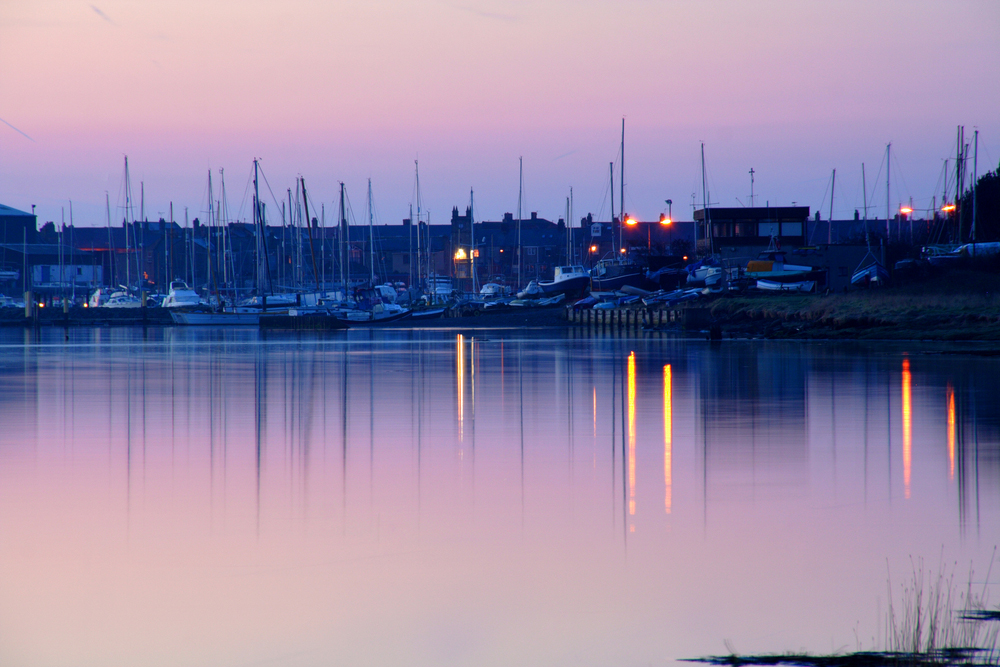 The Town of Amble is situated on the Northumberland coast, it is at the mouth of the River Coquet, just a mile from Warkworth. Amble was built on a point of land that sticks out from the main run of the coast, so offers excellent views of the coastline. The old spelling for Amble is thought to be Annebelle, meaning Anna’s Promontory. Amble and the surrounding area has been populated for many centuries. Ancient British foundations have been found here, as well as Roman coins, signifying occupation during different periods of time.
The Town of Amble is situated on the Northumberland coast, it is at the mouth of the River Coquet, just a mile from Warkworth. Amble was built on a point of land that sticks out from the main run of the coast, so offers excellent views of the coastline. The old spelling for Amble is thought to be Annebelle, meaning Anna’s Promontory. Amble and the surrounding area has been populated for many centuries. Ancient British foundations have been found here, as well as Roman coins, signifying occupation during different periods of time.
Amble is commonly known as ‘the friendliest port’ and gained the nickname in the 1930’s when Amble Council sent the RMS Mauretania a message on it’s last voyage to the the wreckers yard ‘Still the finest ship on the seas’ and they replied with greetings ‘to the last and friendliest port in England’. The Town is now a popular place for holidays with it’s pleasant harbour, marina, proximity to beautiful beaches and many facilities it’s easy to see why.
Getting There
By far the easiest way to visit Amble is by car. It is approximately 15 miles from Morpeth and 9 miles from Alnwick, right on the coast. There is free public parking in the area just before the harbour and Pay and Display parking at the harbour itself. All parking is clearly marked on our interactive map of Amble. Postcode for your SatNav: NE65 0DQ
Amble Harbour, Amble Guide, NorthumberlandAmble’s Attractions and Things To Do
Many of the things to do in Amble are based in the very thing that almost completely surrounds it – water. Watersports, sailing, canoeing, kayaking and fishing are all extremely popular. There are certainly excellent facilities available including the Marina, Harbour, Angling Centre and many clubs. The Coquet Island is just a mile off the coast and is an RSPB designated site of special scientific interest. It is also home to some 35,000 nesting birds in summer and a seal colony over 600 strong. Boat trips out to the Coquet to see the wildlife run daily throughout the summer and leave from the harbour.
